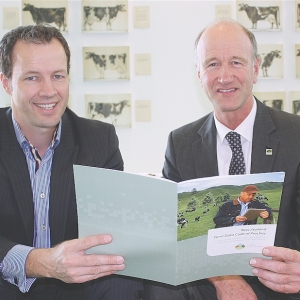The Farm Data Code of Practice, launched this month, is a first for New Zealand agriculture.
DairyNZ chief executive Dr Tim Mackle says widespread adoption of the code will increase the security of information and the speed and ease with which it is shared. Long-term, its adoption should encourage faster innovation in farming, he says.
“The reality is that the terminology used daily by farmers is defined differently by the range of organisations with which they communicate and share information.
“Organisations adhering to the new code of practice commit to use common terminology and dictionaries to make it easier to share land and animal data in a secure manner.
“At the moment, farm data is not moving between organisations in the volumes it could, often due to differences in data definitions, the need for multiple data entry or complex integration software.
“By increasing the rate at which data can securely move between service organisations, the speed of innovation will surely increase. That’s great news for farmers and New Zealand’s rural sector as a whole.”
Although development of the code is a dairy initiative, it is relevant to all New Zealand farmers.
Federated Farmers president Bruce Wills says that organisations’ adherence to the code will give farmers peace of mind that their farm data is secure when it’s outside their hands, making it easier for farmers to manage their data.
“Farmers share a lot of valuable and confidential information every day…. Organisations adopting the code of practice are able to demonstrate their information management systems are secure, reliable and up to the task.
DairyNZ is encouraging all organisations collecting, holding or sharing information about primary producers and farming operations to adopt the code.
DairyNZ strategy and investment portfolio manager Jenny Jago, who oversaw the code’s development, cautions that it is the first of many steps forward for the industry.
“Organisations’ adoption of the code is part of a bigger picture – the industry working together to improve the management and effective use of farm data.”
The code is a major piece of work and a key first step, Jago says. “Now it’s up to the industry to action it.”
“Over the next year, our steering committee will continue to release additional data standards,” says Jago.
















